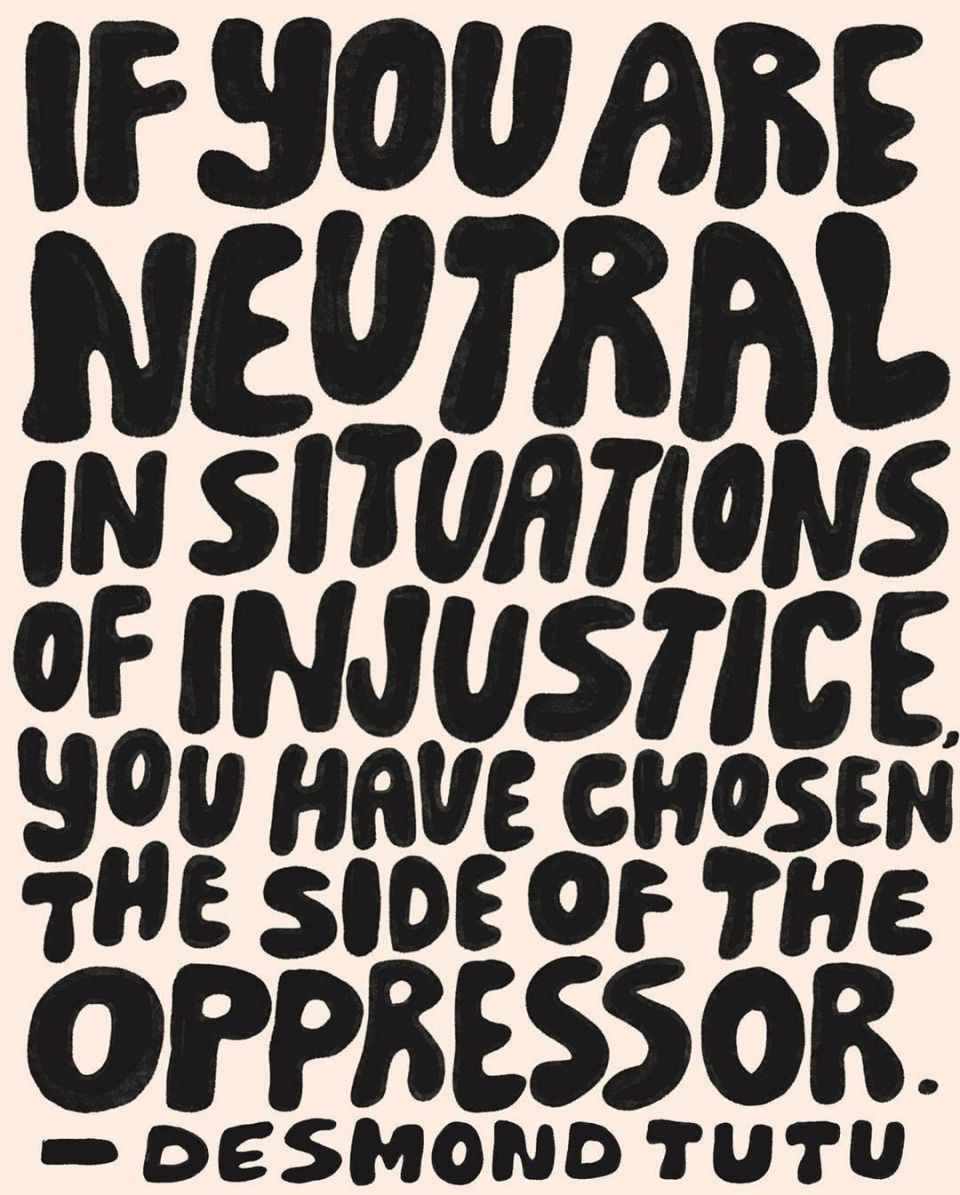Last Updated on June 23, 2020 by Kristen

Art by @stuffgracemade
Editor’s note: A version of this post first appeared on the Zelma Rose Instagram page.
As I am sharpening my activism skills and currently sheltering in place with my parents—two seasoned boomer activists—I thought I’d ask for their advice. My parents were young adults in the 1960’s and participated heavily in the anti-war, civil rights, and environmental movements.
Activism was and still is an enduring part of our family culture. A conversation that began with me at a very young age through art and music continued and grew stronger as I became a teen and young adult. Art was the language we used to inform ourselves and reflect injustice and disparity.
When my cousin Wesley died of AIDS in the early 90’s and I wanted to take action, my mom guided me step by step how to mobilize our community. By the time I graduated high school I had raised thousands of dollars for AMFAR and created an AIDS awareness exhibition for my school art gallery. I was learning how to take part in a social movement.
Given their influence, I thought it would be interesting to ask my parents how they learned to be activists and what tips they could share for those who might be getting involved for the first time. I’ve summarized their answers below.
Choose an organization.
Do the research and find an organization that you align with and one that is doing good work. Research is easy these days, information is everywhere. Consider several and to start, choose one.
[perfectpullquote align=”full” bordertop=”false” cite=”” link=”” color=”#872657″ class=”” size=”36″]Know that the traumatized need to rest.[/perfectpullquote]Share resources.
Back in the day, having access to a photocopy machine was a big deal. My parents and their friends used to type letters on a typewriter. Then a friend who worked at a bank who had access to a photocopy machine would make copies of the letters in secret. My mom would cut out names and addresses with a razor blade, switch them out and then glue them to the letter to be photocopied to save time on typing. This is literally where cut and paste came from.
Resources are way easier to share now, so if you are working from a template for a letter or phone call, have notice of a town hall or protest, share the information as widely as possible.
Be consistent.
This is also less cumbersome than back in the day, as organizations can more easily share information about activism campaigns and fundraising. Decide that each time you are called to action, you will take it. Whether that means writing a letter, making a phone call, signing a petition, attending a protest, or donating money, when they call, consistently do your thing. Then share the action.
[perfectpullquote align=”full” bordertop=”false” cite=”” link=”” color=”#872657″ class=”” size=”36″]Get real about how you can participate consistently.[/perfectpullquote]
Double Down.
Commit to adding a +1 to your activism. Know that the traumatized need to rest. When you take action, take action for two. Write two letters, make two phone calls, and donate for two people. You get it. It allows us to double down our efforts.
Go big. But also go local.
When taking part in a national campaign, share your views or action with your local government. If you live in a small town reach out to your local representatives. Let them know what matters to you. Request resources be made available for locals who wish to participate. Again, a good way to double down efforts and encourage your friends and neighbors to take action.
Keep going.
It’s a long haul and unrelenting for those who are personally impacted. Get real about how you can participate consistently. This might change at different times in your life. My parents are no longer hiding draftees in their basement but my dad is consistently active in a veteran’s rights and support organization. They can no longer keep up in a protest but they can write letters and make phone calls. Commitment means consistently finding ways to participate over time. It’s a marathon.
Check out this extensive list of activism resources to get started.
Lisa Anderson Shaffer is a psychotherapist, author, fine artist and founder of Zelma Rose.
